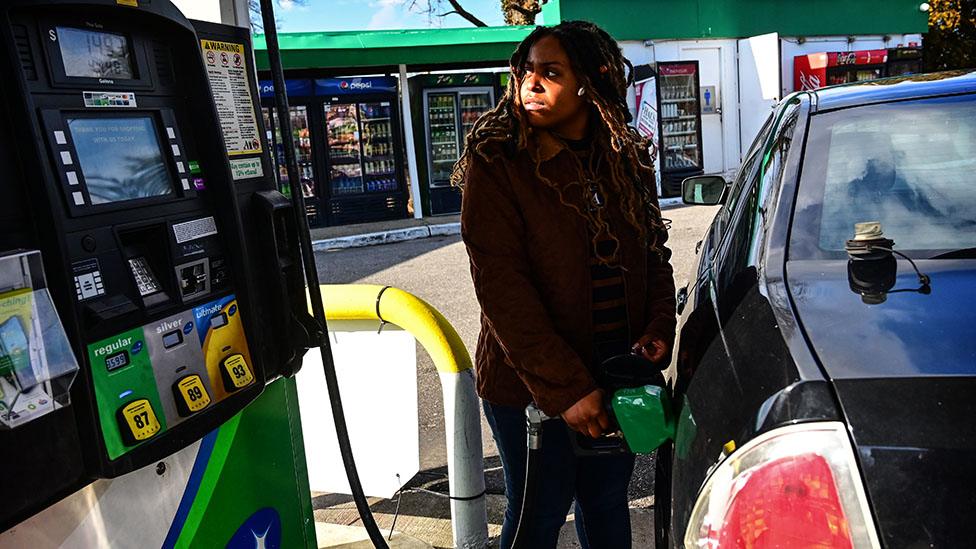Fuel prices: Cut in excise duty comes into effect in Ireland
- Published
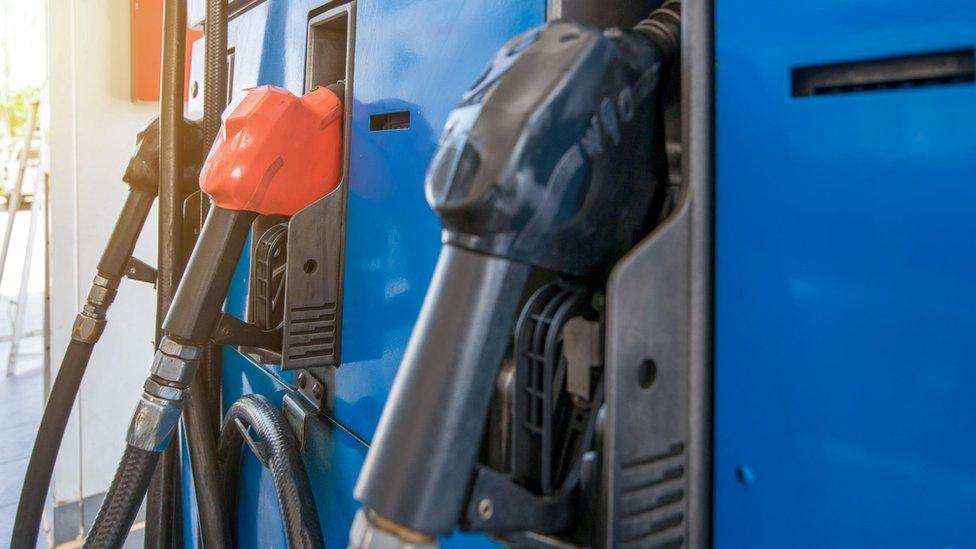
A cut in excise duty on petrol and diesel has come into effect in the Republic of Ireland but prices remain high, an industry body has said.
On Wednesday, the Dáil (lower house of Irish parliament) voted in favour of the cut.
Petrol is reduced by 20 cents per litre and diesel is reduced by 15 cents per litre.
Fuels for Ireland said anyone crossing the Londonderry-Donegal border looking for cheaper fuel may not find it yet.
The Republic of Ireland's legislation will be in place until the end of August at a cost of €320m (£268m).
It was introduced after prices hit another record high as oil and gas costs soared amid fears of a global economic shock following Russia's invasion of Ukraine.
The market turmoil is fuelling concerns that the price of many every day items from food to petrol and heating, already rising at their fastest rate for 30 years, could be pushed even higher.
Petrol prices of £1.65 per litre have already been reported in parts of Northern Ireland, with diesel prices close to £1.80 per litre
'Complex and volatile'
Kevin McPartlan, chief executive of Fuels for Ireland, said the situation is "complex and volatile".
He said in many instances the cost of fuel that people are seeing in filling station forecourts on Thursday morning was already paid at the higher excise price before the new legislation came into effect.
"Hopefully, within the next day or two that cost will come down, but there are still many unknowns," he told BBC News NI.
Mr McPartlan said many petrol station operators will need to take into account a multitude of factors in terms of pricing.
"It mostly comes down to what a filling station forecourt has paid for its fuel and, more importantly, what they think they'll likely have to pay for it next," he said.
"Right now that is constantly changing so it's very hard to gauge," he added.
He said many filling stations work on different operating costs, with different contracts and in many cases the profit margins are very tight so prices vary across the board.
Why fuel duty cuts in the Republic of Ireland may not be felt by customers at the pumps.
Terry Hughes, who owns a petrol station near Ballyshannon, County Donegal said customers would not likely see a reduction on the cost of fuel at his filling station until at least the weekend.
"We have to wait until Saturday until we can buy a load at that lower price," Mr Hughes explained.
"Everyone has a certain amount of stock at that higher duty price and it's going to take us until Saturday or Sunday before we start to see the price reductions appearing."
Mr Hughes said they might actually end up taking a financial loss on the fuel he bought last week just in order to "stay competitive" in the market.
He does believe the legislation in the Republic of Ireland will eventually give them an advantage over fuel stations a few minutes down the road in Northern Ireland, but said that is not the case just yet.
Eamonn Connolly, who runs Newry Business Improvement District, said cross-border trade was "not linear" and people in border areas have always gone across in search of better prices.
"Sometimes we benefit and sometimes Dundalk benefits and it's about putting your best foot forward to make the most of the opportunities that avail," he said.
He accepted there are ongoing challenges but said there are opportunities for businesses near the border as well.
'When is it going to stop?'
The BBC spoke to motorists at a petrol station in Derry - they called for more to be done to tackle fuel prices in Northern Ireland.
"They need to bring it down, they need to bring it down for everyone," one disgruntled motorist told BBC Radio Foyle.
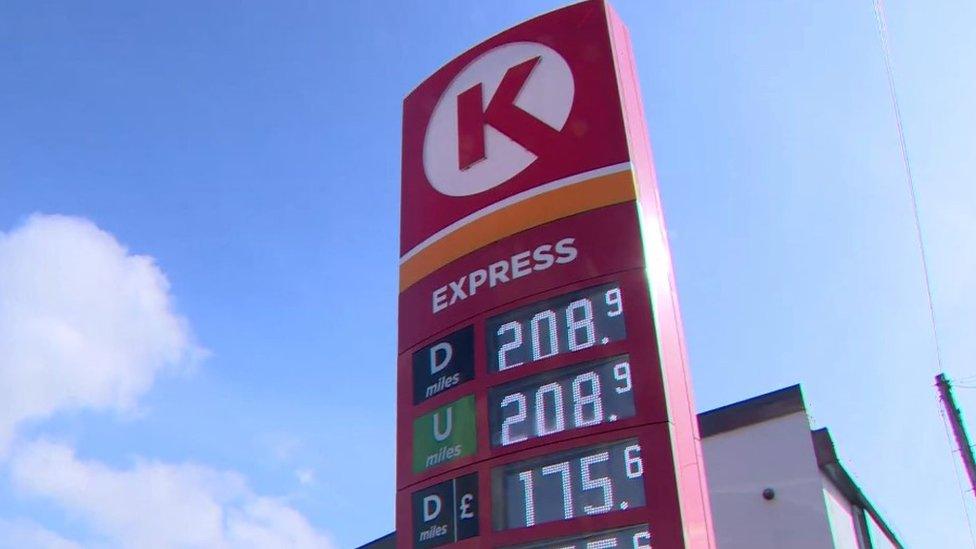
This picture taken on Thursday showed the cost of petrol and diesel at a filling station in Omeath, County Louth
"I have just filled up 12 litres, not even 12 there about 11.8 litres for £20. It's ridiculous - we will all start using bicycles again," another motorist said.
Another motorist at a nearby petrol station said fuel prices were just another increase that many families will be struggling to afford this year.
"It's terrible, everything is terrible at the minute. The price of living now is scary. When is it going to stop?" she said.
One taxi driver said they were "feeling the pinch" not only because of fuel prices, but because people are choosing not to go out as much over money concerns.
"You're seeing at the weekend less people are going out for a bite to eat because they can't afford it," he said.
Related topics
- Published1 March 2022
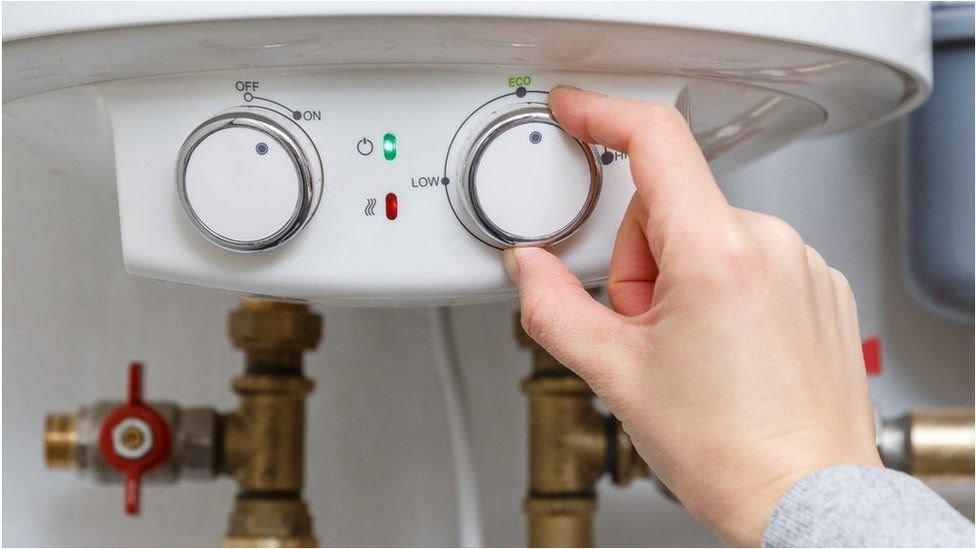
- Published3 March 2022

- Published2 March 2022
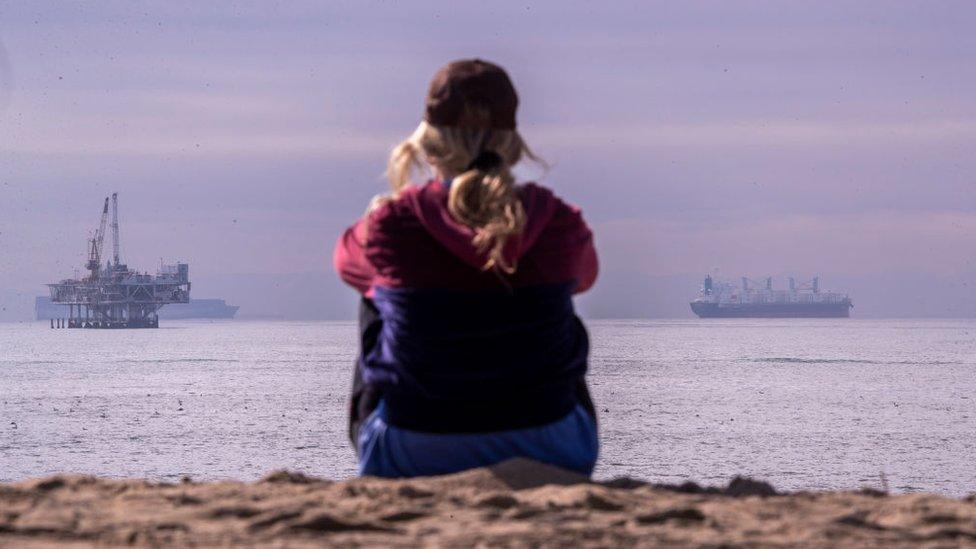
- Published3 March 2022
